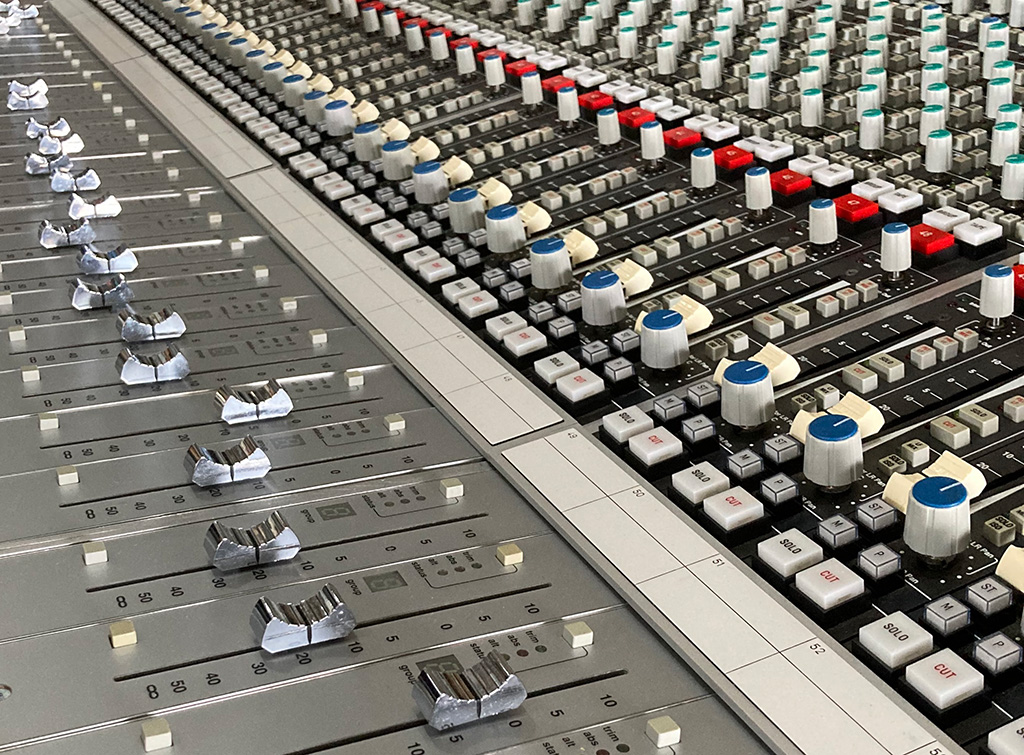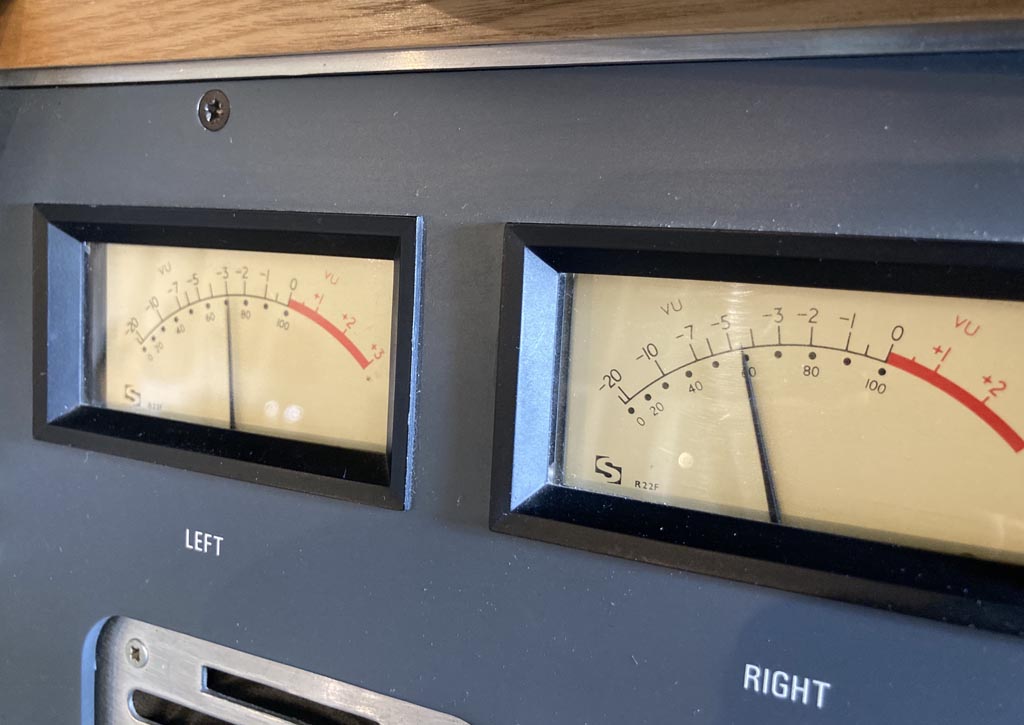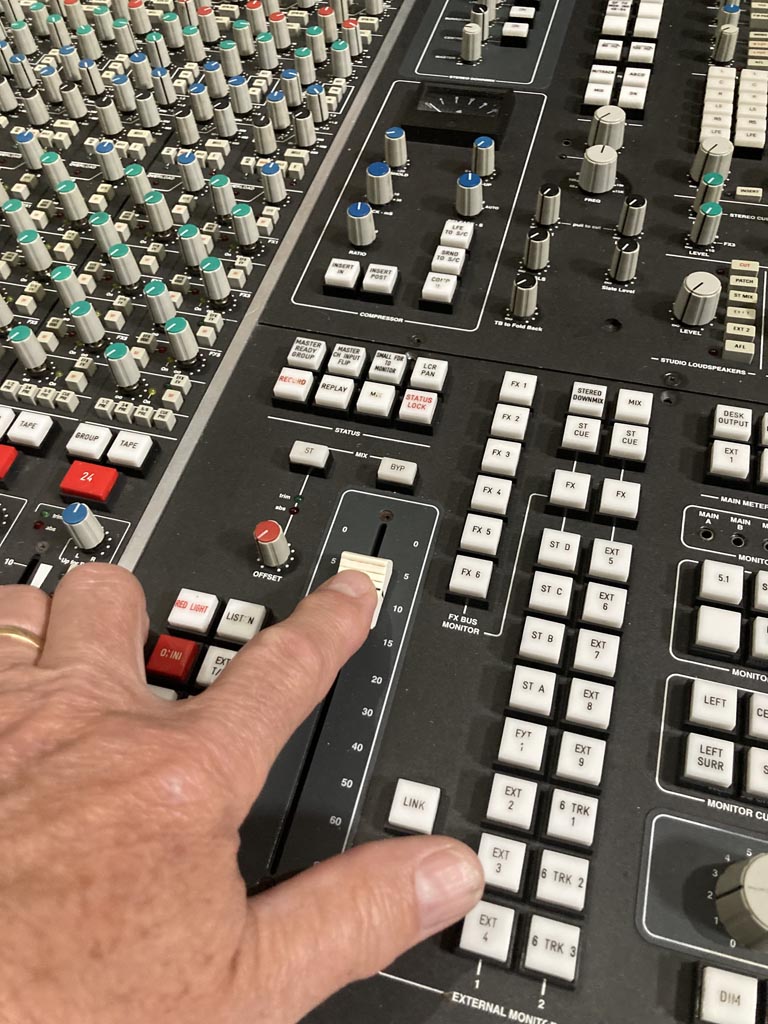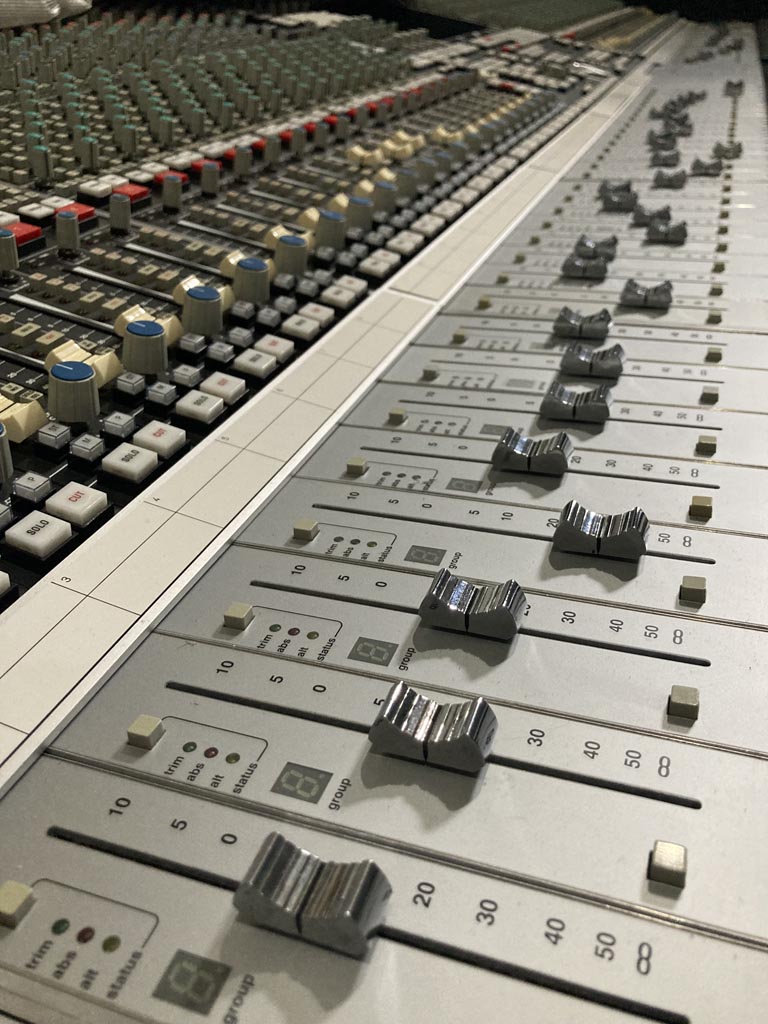LISTEN HERE
12 Jan 2023
Listen Here: The TWO-FOR-ONE Ordeal

Subscribe to CX E-News
Are you the sort of engineer whose mixes are the sum of their well-conceived recorded parts, or someone for whom the mix itself is all that matters? Sometimes it’s hard to separate yourself from the countless faders in front of you, to reimagine a piece of music as a left and right channel only, especially if you’ve also recorded it! For some engineers and musicians, hearing a final mix sound too divergent from its in-progress origins constitutes a bridge too far.
There are lots of ways to mix, countless mountains of advice out there about technique (only some of which is offered first-hand), and endless examples of successful songs that play on your phone, radio and telly that influence your perspective day in and day out.
Working out the best way to achieve awesome results to your ear, however, and those of your clients for that matter, is the real trick. There’s not much point trying to mix like some other well-known dude if, by doing so, you go against every instinct and musical preference along the way. Life’s too short, and besides, most of the successful mix engineers have followed their own path, not someone else’s.
One of the most interesting things to discover about yourself and your mixing journey is recognising the type of mixes you like to create. You might be a super clean, clear and deep mix engineer who prefers fidelity over crunchy tones, dynamics over in-your-face aggression. If so, cool! Or you might be a big, wet, mysterious stylee mixer, whose final mixes barely resemble the musical sources printed on the multitrack. That’s cool too! Or you might be a ‘Democratic Mixer’ who likes everyone represented equally in the mix – one instrument, one vote – a style of which I’m generally not a fan.

But there’s another type of mix engineer out there – and you might be one of them without even realising it.
The Two-For-One Combo
This group forms the largest category of all: the engineer that is both recording and mix engineer combined. For many in this substantial group, and let’s face it, we’re all a member of this club at one time or another, there’s a hurdle we sometimes find exceedingly hard to jump: being able to imagine (or reimagine) a final mix that is significantly different somehow from the countless tracking and ‘in-progress’ mixes we’ve made during the often-times exhausting recording process.
We effectively become entrapped by our own production process, having heard the music repeatedly in its various tracking and overdubbing phases over and over again. This can lock us in to a certain way of hearing our music, smothering our ability to imagine the mix afresh right at the end when it matters most.
When this happens, our final master mix choices are no longer driven by a purely creative, impartial perspective, the focus of which should only be the final mix outcome. We become enamoured (and possibly exhausted) by the details of our own tracking and demand of ourselves that the mix pays reverence to all our hard work! But, of course, it can’t, nor should it.
The ‘in-progress’ mixes made along the way can be hugely influential over a final mix, affecting the perspective of both the mix engineer and the clients, sometimes without anyone involved being remotely aware of it. In- progress mixes can be a rod for your back; an impediment to realising the best outcome for your precious project.
It doesn’t always matter of course. Sometimes a final mix differs very little in the grand scheme of things. Problems mainly arise when you can no longer imagine a piece of audio any other way, even though you might be aware (intellectually, at least) of the need for it to sound different somehow. You might have sailed into the dreaded waters of ‘Demo Mixitis,’ discovering when you languish there that you and your clients can no longer imagine a final mix that’s different from its tracking derivations.
The common cause here for most engineers and artists alike, is familiarity in extrema. For recording engineers, in particular, the double- edge sword here is that they know every nut and bolt, every shortcoming and highlight of every channel of audio they ever record, the negative impact of which is that, when it comes time to mix, all that hard work, all those great takes, all that nuance and detail in every sound, is deemed worthy of highlighting, either consciously, or subconsciously. But, as we all know, you can’t highlight everything, certainly not the detail in 100 instruments all playing at once! It’s folly to attempt it and yet many of us repeatedly try, thinking we can somehow have our cake and hear it too. We can’t.

I Want To Break Free
The only way out of this bind is to recognise the problem and make a concerted effort to find a solution. Here are a few.
The first is to consider handing the song (or project) you’re working on over to a collaborator for whom you have respect and trust. If you can find someone like that; someone’s who’s like-minded and gets your perspective on the work you’ve created, then you’re probably better off in the long run. Sure, you might lose a few paid days’ work, but hopefully that handpass simply allows you to focus on the next job. And sure, you mightn’t think the mix outcomes are perfect, and you may hold reservations about some of the mix choices that were made, but part of that feeling will always be for the very same reason you handed it off in the first place! You might even discover that collaboration benefits you directly by making your work sound better than it might otherwise have.
If, however, you’re not prepared to let the project out of your clutches quite yet (and you’re convinced there’s no-one on earth who’d be better at mixing it than you), then at least try and separate yourself from it with the passage of time.
Give yourself a break, allow time to disconnect you from the nitty gritty of some of the tracking, the politics of the band (if a band exists), and the variables in some of the arrangements. Nothing quite beats a fresh perspective on a project, and nothing inspires decisive decision making about a mix more than space from the tracking process and the fine detail therein. It’s literally a chance to step back from the music and hear it macroscopically. Indeed, this is precisely the perspective of a mix engineer; someone who has never heard the countless headphone overdub mixes or the in-progress stereo files, but sees the whole as a new single entity, not merely a collection of parts all vying for political supremacy… “Yeah, the singer’s boyfriend plays the bass so we really need to turn that up, otherwise he’ll get jealous of how loud her voice is…”
That is an actual quote, by the way…

And as I’ve mentioned in previous articles, if you start back onto a project with mixing squarely in mind, try avoiding old mix habits: left-to-right mixing, standard groups and effects channels, drums first, vocals last, listening over and over with no specific aim in mind, the overuse of generic templates (even if you made them yourself). How about mixing just two of your favourite sounds in the arrangement plus the vocal? Sounds controversial? Good.
Either way, break up your own thinking. Force yourself into an experimental corner from which only deep listening can extricate you. You might be surprised by the results. Think outside the box, let the music rather than the memory of the production process, guide you. If something inconsequential or ‘secondary’ to the central arrangement catches your ear, follow that instinct. Don’t intellectualise yourself out of it by thinking it should remain subdued in the mix. Listen and react.
Finally, put an embargo on people listening to old rough mixes if possible, especially people outside the artists themselves. This includes partners, managers, publicists; everyone. Indeed, do that as early as you can, lest these files corrupt the ear of anyone who puts them on high rotation. Old demos can really make a mess of a production’s final lunge for the finish line.
And one last thing: if your mixing tends to be conservative, plain or subdued but the kind of engineer you really want to be is more dramatic, explosive and captivating, try mixing something you didn’t track yourself. You might find it energises and liberates you to some degree, allowing your imagination to present music that’s fresh to your ear with a confidence and fearlessness you didn’t know you possessed. Recognise then how different it feels when you work on other people’s music and try to apply that vibe to the recordings you make yourself.
Good luck!
Andy Stewart owns and operates The Mill studio in Victoria, a world-class production, mixing and mastering facility. He’s happy to respond to any pleas for pro audio help… contact him at: andy@themill.net.au or visit: www.themillstudio.com.au
Subscribe
Published monthly since 1991, our famous AV industry magazine is free for download or pay for print. Subscribers also receive CX News, our free weekly email with the latest industry news and jobs.






